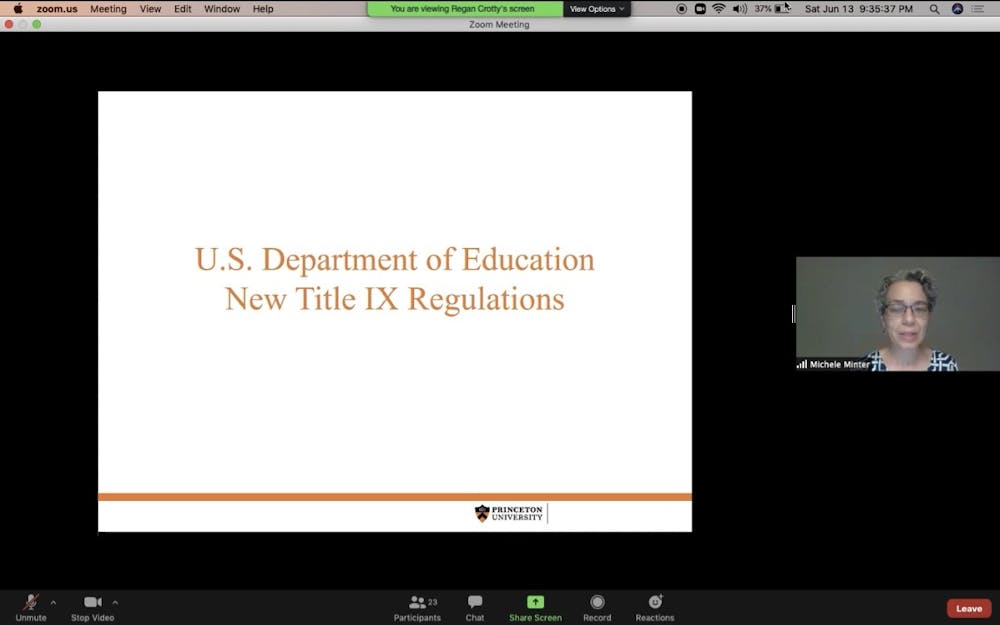During a Undergraduate Student Government (USG) meeting on June 13, Vice Provost for Institutional Equity and Diversity Michele Minter said new Title IX regulations imposed by Secretary of Education Betsy DeVos last month “are problematic in a number of ways.”
“First of all, they’re very complicated, and they’re going to be confusing for the community to understand,” Minter said. “In general, we think they’re going to have a chilling effect on people’s willingness to go through the process.”
Among other measures, the new regulations narrow the definition of “sexual harassment,” require colleges only to investigate those cases filed through a “formal process,” and allow individual institutions to employ the standard of “clear and convincing evidence” — a higher burden of proof than the previously-required “preponderance of evidence.”
In addition to Minter, the USG meeting featured Title IX Administrator Regan Crotty ’00 and Sankar Suryanarayan of the University’s Office of the General Counsel. Minter, Crotty, and Suryanarayan sought to explain the processes the University will undertake in response to the new guidelines.
The University is required to implement the new policy by Aug. 14 — two weeks before the scheduled start of the fall term. According to Minter, the policy will be approved in four stages.
The disciplinary and nondisciplinary components of the policy will be divided for approval between two committees. While the Faculty Advisory Committee on Policy will approve the disciplinary sections of the new policy and recommend them to the full faculty in a meeting this summer, the Rights and Rules Committee of the Council of the Princeton University Community (CPUC) will look at the nondisciplinary parts of the policy before recommending them to the full CPUC.
Suryanarayan explained the Trump administration’s newly adopted definition of “sexual harassment” for Title IX, new procedural requirements for Title IX cases, and new requirements that narrow the scope of what can be defined as Title IX sexual harassment. Some of these requirements stipulate that the alleged misconduct must be both severe and pervasive, and the alleged misconduct must have occurred within the United States, placing study abroad programs beyond the purview of Title IX.
If a Title IX complaint does not meet all of the required elements, it must be dismissed by the University. However, the University may still address the conduct under a non-Title IX University sexual misconduct policy, according to the slides presented by the administrators.

Crotty added that regardless of new policies the Trump administration may put in place that threaten the rights of transgender individuals, the University will continue working to protect all community members from sexual harassment.
“Whatever the [Trump] Administration has done or will do with respect to gender identity [or] gender expression, our policies will protect people’s gender identity and gender expression,” Crotty clarified. “It may be under a different policy than it is now, or it might be a different process or procedure, but that’s something we’re all certain will continue being a protection on our campus.”
When the new DeVos regulations were first announced on May 6, Minter said in a statement from the Office of Communications that the University would use the coming weeks to review the new regulations and determine how to “implement the new requirements in a way that best preserves our current system’s fairness, thoroughness, and sensitivity to the needs of all parties and witnesses.”
The meeting was held via Zoom at 9:30 p.m. EDT.









